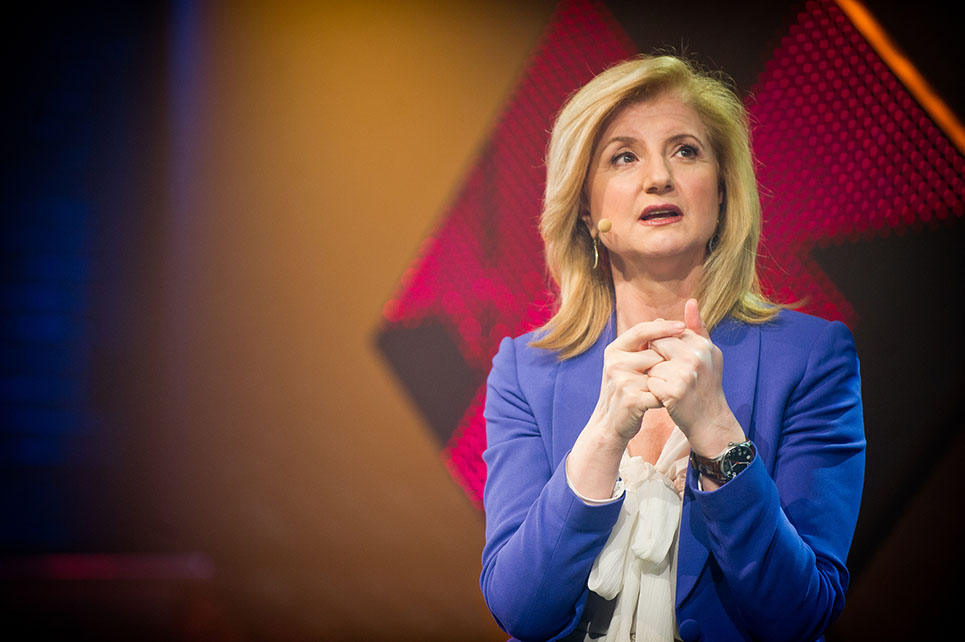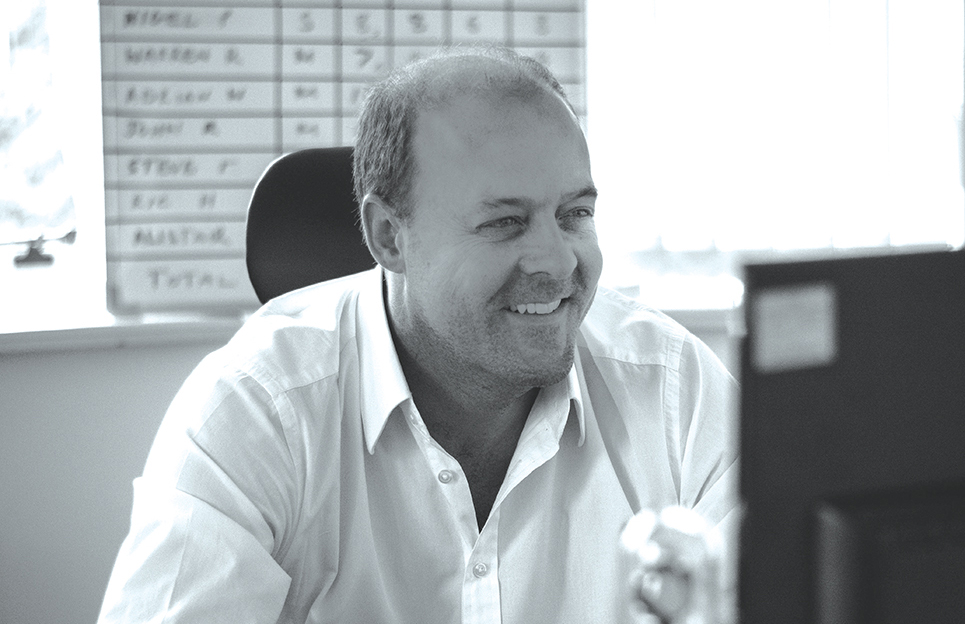
It’s safe to say that, as successful as the disruptive ride-hailing service Uber has been, it has never been held up as an example of positive company culture. Stories of bullying abounded, reaching a crescendo when a female Uber engineer published a blog post describing how she had been constantly discriminated against and had been sexually harassed by her managers; complaints which were shrugged off by Uber’s human resources department. The result in 2016 was the forced resignation of controversial CEO Travis Kalanick and the appointment of a new CEO from Expedia, charged with the task of repairing the company’s battered image.
Another key appointment to the board was Arianna Huffington, who was bought in to revolutionise the company’s corporate culture, prioritising a better work-life balance for the firm’s employees.
In the same year, the founder of The Huffington Post, the high profile online news service, stepped away from the business which made her a household name, and moved into the health and wellness sector, launching Thrive Global, a web portal dedicated to addressing the skewed balance between work and life.
The switch was dramatic and a reflection of how health and wellbeing has become paramount in the policies and mission statements of the world’s leading businesses. In this issue of Platinum Business Magazine, we are launching our new regular Health and Wellbeing section. Arianna’s story neatly represents the distinct sea change in how businesses now operate.
The wake-up call
“On the morning of April 6, 2007, I was lying on the floor of my home office in a pool of blood. On my way down, my head had hit the corner of my desk, cutting my eye and breaking my cheekbone. I had collapsed from exhaustion and lack of sleep. In the wake of my collapse, I found myself going from doctor to doctor, from brain MRI to CAT scan to echocardiogram, to find out if there was any underlying medical problem beyond exhaustion. There wasn’t, but doctors’ waiting rooms, it turns out, were good places for me to ask myself a lot of questions about the kind of life I was living.”
Arianna Huffington pinpoints the day her life changed in her book ‘Thrive: The Third Metric to Redefining Success and Creating a Life of Well-Being, Wisdom, and Wonder’. Quite simply she had burned out. Her high-powered charge to success and international fame had caught up with her.
Her name is familiar across the globe, notably for the The Huffington Post (often shortened to The Huff Post), but in America she is a truly household name. It is difficult to find a UK equivalent of Arianna - a dynamic businesswoman who is actively involved in politics, a highly successful author and an instantly recognisable media celebrity. In short the consummate communicator.
In fact, the UK had a huge influence on Arianna’s journey. Born in Athens in 1950, Arianna Stassinopoulos’ father was a journalist, but she has credited her mother for installing the determination to succeed that has marked her career. In an interview with the BBC World Service, she declared that her mother “made me believe that I could try whatever I wanted and that if I failed she wouldn’t love me any less.”
Her mother brought her to London when she was 16, where, despite speaking very little English, Arianna passed an entrance exam to study economics at Cambridge University. She had seen a picture of the University and simply decided she wanted to go there. She succeeded by visualising her dream and thus achieving her ambition.
According to Lauren Collins in The New Yorker, it was on a tour of the university that she discovered what her passion was: “During a student-group fair, Huffington toured the chambers of the university’s debating society. Since girlhood, she had possessed a spiritual impulse, studying Hinduism and fasting on the name day of the Virgin Mary. The Cambridge Union became another cathedral. ‘I just threw myself into it,’ she recalled. ‘I went to every debate. I must literally have sat there with my mouth open. I was so spellbound by the spectacle of great speakers and people being moved or angered by their words.’” She later became president of the Cambridge Union.
Her first brush with fame came at the age of 23 when she wrote ‘The Female Woman’, a strident riposte to Germaine Greer’s seminal work ‘The Female Eunuch’. Arianna argued that the “frenetic extremism” of the women’s liberation movement was seeking “not to emancipate women, but to destroy society.” It was no surprise that right wing commentators embraced her controversial debut.
Arianna moved to New York in 1980 and used her love of words and conversation to create a big splash in New York. Lauren Collins writes: “…she became a conservative commentator and consort, who became an Upper East Side socialite (“The most upwardly mobile Greek since Icarus”), who became a Republican political wife, a divorcée cable comedienne, a self-help writer, a progressive, an early environmentalist, a failed gubernatorial (governor) candidate, a blogger, an Internet mogul, and, through it all, one of the Anglophone world’s most nimble and ubiquitous communicators.”
In 1986 she married oil millionaire Michael Huffington, who then successfully stood for Congress as a Republican in Santa Barbara, California. The couple had two daughters, but divorced in 1997. A year later Michael disclosed that he was bisexual. Arianna, by now a naturalised US citizen, retained her married surname, which she would make far more famous than any of her ex-husband’s political achievements.
At the time of her divorce, Arianna was still an outspoken Republican supporter. New Yorker columnist Margaret Talbot described her in the following terms: “She has cast herself as a kind of Republican Spice Girl – an endearingly ditzy right wing gal-about-town who is a guilty pleasure for people who know better.” Controversially, she opposed NATO intervention against Serbia amidst the bloodshed after the break-up of Yugoslavia.
Somewhere after the late 1990s, her politics shifted leftwards, and she endorsed the Democrat Presidential candidate John Kerry in 2004. In 2005 she co-launched The Huffington Post, largely as an alternative to popular news aggregators such as the Drudge Report, which had a heavy right wing bias. The impact was dramatic. In 2011, AOL acquired The Huffington Post for $315 million, making Arianna Huffington editor-in-chief of The Huffington Post Media Group. In July 2012, The Huffington Post was ranked No. 1 on the 15 Most Popular Political Sites list in the US. The site enthusiastically backed Democratic contenders including Barack Obama and was consistently vocal in its opposition to the Iraq War.
Just as her politics had switched so had her views on gender. In 2006, she wrote ‘On Becoming Fearless … In Love, Work, and Life’, which could hardly have been further from her 1973 anti-feminist manifesto. Megan O’Rourke (slate.com), wrote that Arianna’s motivation was to: “Start a ‘fearlessness epidemic’ that would transform the lives of women. Tellingly, what moved Huffington to action wasn’t merely perceived inequality but also the immediate lack of female readership at her own site. She had been surprised to find that the readership of the Huffington Post was predominantly male. Huffington conceived of a section of the site that would deal with what seemed to her to be the primary thing holding women back: their own fears.”
Her support of women’s issues produced a typical response from Donald Trump in 2012: “@ariannahuff is unattractive both inside and out. I fully understand why her former husband left her for a man - he made a good decision.” Trump was clearly just as charming before he became President.
Thriving in the modern world
It may well be that Arianna Huffington’s departure was inevitable, regardless of her desire to create the wellbeing project which she is clearly passionate about. Her tenure at The Huff Post was not without its frictions and there were reports of conflicts between her and the powers at AOL. In an extended feature in Vanity Fair, William D. Cohan painted a picture of an unhappy ship at the company, with reports of “serious tensions” as a result of Arianna’s “aggressive spending and missed financial targets”.
Even if the numbers were not as healthy as might have been expected, Arianna’s reputation was intact, and she has since become a respected icon in the field of health and wellbeing.
Thrive Global states that its mission is “to end the stress and burnout epidemic by offering companies and individuals sustainable, science-based solutions to enhance well-being, performance, and purpose, and create a healthier relationship with technology.”
In other words, Thrive Global is Arianna’s thorough and insightful response to her fatigue-induced injury back in 2007.
The basis of her argument is that the whole notion of ‘success’ needs to be re-examined. In her book, ‘Thrive: The Third Metric to Redefining Success and Creating a Life of Well-Being, Wisdom, and Wonder,’ she writes, “Over time our society’s notion of success has been reduced to money and power. In fact, at this point, success, money, and power have practically become synonymous in the minds of many.
“This idea of success can work—or at least appear to work— in the short term. But over the long term, money and power by themselves are like a two-legged stool— you can balance on them for a while, but eventually you’re going to topple over. And more and more people—very successful people—are toppling over.”
Her ‘Third Metric’ (alongside money and power) to measure success consists of four pillars: well- being, wisdom, wonder, and giving:
Wellbeing: “The Western workplace culture—exported to many other parts of the world—is practically fuelled by stress, sleep deprivation, and burnout. I had come face-to-face—or, I should say, face-to-floor—with the problem when I collapsed. Even as stress undermines our health, the sleep deprivation so many of us experience in striving to get ahead at work is profoundly—and negatively—affecting our creativity, our productivity, and our decision making.”
Wonder: “When we’re living a life of perpetual time famine, we rob ourselves of our ability to experience another key element of the Third Metric: wonder, our sense of delight in the mysteries of the universe, as well as the everyday occurrences and small miracles that fill our lives.”
Wisdom: „Wherever we look around the world, we see smart leaders—in politics, in business, in media—making terrible decisions. What they’re lacking is not IQ, but wisdom. Which is no surprise; it has never been harder to tap into our inner wisdom, because in order to do so, we have to disconnect from all our omnipresent devices—our gadgets, our screens, our social media—and reconnect with ourselves.”
Giving: “The last element to the Third Metric of success is the willingness to give of ourselves, prompted by our empathy and compassion. America’s Founding Fathers thought enough of the idea of the pursuit of happiness to enshrine it in the Declaration of Independence. But their notion of this „unalienable right” did not mean the pursuit of more ways for us to be entertained. Rather, it was the happiness that comes from feeling good by doing good. It was the happiness that comes from being a productive part of a community and contributing to its greater good.
“There is plenty of scientific data that shows unequivocally that empathy and service increase our own well-being.”
An example that Arianna uses to illustrate the argument is the writing of an eulogy, something that strikes a chord with me personally as I have, along with my sisters, penned eulogies for both of my parents over the last few years. She points out that at a funeral you never hear phrases such as:
“He increased market share for his company multiple times during his tenure.”
Or:
“She never stopped working. She ate lunch at her desk. Every day.”
Or:
“He never made it to his kid’s Little League games because he always had to go over those figures one more time.”
She surmises: “Our eulogies are always about the other stuff: what we gave, how we connected, how much we meant to our family and friends, small kindnesses, lifelong passions, and the things that made us laugh.
“So why do we spend so much of our limited time on this earth focusing on all the things our eulogy will never cover?”
For Arianna Huffington it took a painful physical collapse for her to rebalance her life.
Don’t wait until you collapse.






